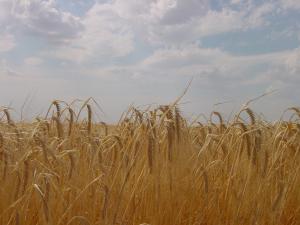Sales of U.S. barley and malting barley to Korea jumped significantly in 2012 thanks to implementation of the United States-Korea Free Trade Agreement (FTA) a year ago this week and to timely promotions of barley by the U.S. Grains Council and other organizations.
According to data from the Korea Customs Services, sales in 2012 reached 1,297 metric tons (56,000 bushels) with a value of $693,146 (U.S.), compared to essentially no sales in 2011. The U.S. barley and malting barley was able to enter the country duty free under a new tariff rate quota that was part of the FTA – a critical factor in the sales.
Byong Min, USGC director in Korea, said the Council began introducing U.S. barley exporters to local importers and providing technical information to buyers. In partnership with McKay Seed Company Inc., the Council organized a seminar on U.S. barley production for Korean importers, distributors and end-users. The Council also assisted an Idaho Food Barley Trade Mission that visited with importer-distributers and end-users.
Min noted that the FTA has had little impact on corn, as the United States already enjoyed low or zero tariff rates on corn for feed imports to Korea. While sales of U.S. corn to Korea were down in 2012 due to the drought, the Korea Customers Services said sales of U.S. corn still reached 2.8 million tons (110 million bushels) with a value of $931 million (U.S.).
The FTA does, however, expand opportunities into Korea’s food and industrial sector and will eventually allow U.S. corn starch to enter duty free. Dried distiller’s grains with solubles also receives duty free access under the FTA.
Most importantly, Min said, implementation of the FTA allows the Council to continue to promote the advantages of U.S. grains and their reliable supplies to meet Korea’s growing feed, food and industrial demand. It also provides a forum for the Council to continue to work with Korean regulatory authorities to assist in review and approval of biotech events to ensure the smooth flow of U.S. grains to Korea.

